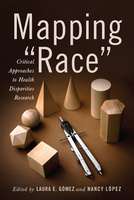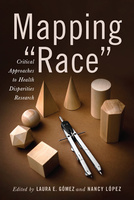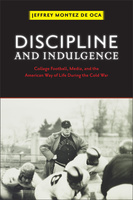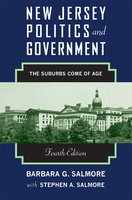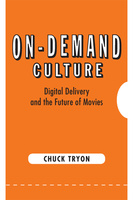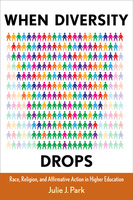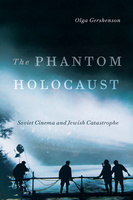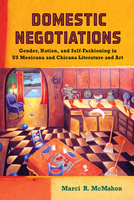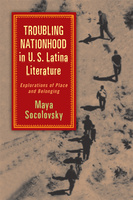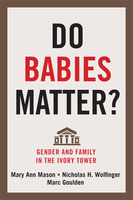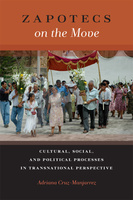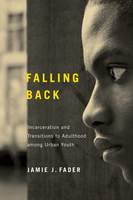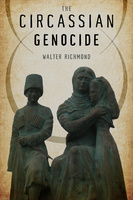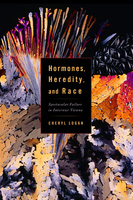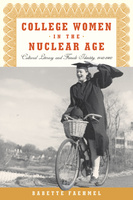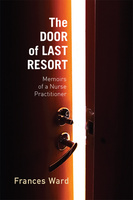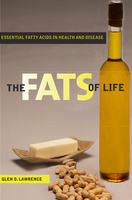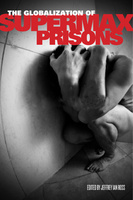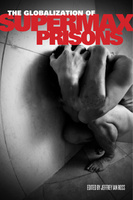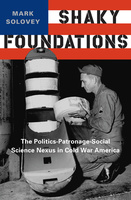Mapping "Race"
Critical Approaches to Health Disparities Research
The essays in this unique book argue for the inclusion of race as a social construction in the design of large-scale data collection efforts and how scientists must utilize race in the context of specific research questions. This landmark collection concludes on a prescriptive note, providing an arsenal of multidisciplinary, conceptual, and methodological tools for studying race specifically within the context of health inequalities.
Mapping "Race"
Critical Approaches to Health Disparities Research
The essays in this unique book argue for the inclusion of race as a social construction in the design of large-scale data collection efforts and how scientists must utilize race in the context of specific research questions. This landmark collection concludes on a prescriptive note, providing an arsenal of multidisciplinary, conceptual, and methodological tools for studying race specifically within the context of health inequalities.
Killer Fat
Media, Medicine, and Morals in the American "Obesity Epidemic”
Killer Fatexamines how and why obesity emerged as a major public health concern and national obsession in recent years. Using primary sources and in-depth interviews, Boero enters the world of bariatric surgeries, Weight Watchers, and Overeaters Anonymous to show how common expectations of what bodies are supposed to look like help to determine what sorts of interventions and policies are considered urgent in containing this new kinds of disease.
Discipline and Indulgence
College Football, Media, and the American Way of Life during the Cold War
Discipline and Indulgence demonstrates how American popular culture during the early Cold War (1947–1964), especially college football, addressed the nation’s postwar affluence and consumerism and their effects on the population by integrating men into the economy of the Cold War as workers, warriors, and consumers. It assesses the period’s institutional linkage of sport, higher education, media and militarism and finds connections of contemporary sport media to today’s War on Terror.
Reel Vulnerability
Power, Pain, and Gender in Contemporary American Film and Television
Reel Vulnerability explores the way American popular culture thinks about vulnerability, arguing that our culture and our scholarship remain stubbornly invested in the myth of the helplessness of the female body. It examines the shifting constructions of vulnerability in the wake of the cultural upheavals of World War II, the Cold War, and 9/11, placing defenseless male bodies onscreen alongside representations of the female body in the military, in the interrogation room, and on the margins.
Jewish Families
Jonathan Boyarin explores a wide range of scholarship in Jewish studies to argue that Jewish family forms and ideologies have varied greatly throughout the times and places where Jewish families have found themselves. He considers a range of family configurations from biblical times to the twenty-first century, including strictly Orthodox communities and new forms of family, including same-sex parents, and suggests productive ways to think about possible futures for Jewish family forms.
Courting Justice
Ten New Jersey Cases That Shook the Nation
Ten cases decided between 1960 and 2011, including the Karen Ann Quinlan decision, the Baby M case, the Mount Laurel decision, Megan’s Law, and the series of decisions known as Abbott/Robinson that directed state funding of poor urban schools on par with suburban districts, shed light on landmark decisions and their impact on national and global events. Different experts cover each case, providing insight into the court’s approach and decision-making process.
New Jersey Politics and Government, 4th edition
The Suburbs Come of Age
This thoroughly updated fourth edition reflects the challenges New Jersey has overcome and those it continues to face. State politics and government have been almost entirely reshaped in recent decades, and those changes are analyzed in every chapter. It offers a comprehensive overview, covering New Jersey’s political history; campaigns and elections; interest groups; the constitution; the development of government institutions; relationships with neighboring states, the federal government, and its own municipalities and counties; tax and spending policies; and quality of life.
On-Demand Culture
Digital Delivery and the Future of Movies
On-Demand Culture is unique in its focus on the effects of digital technologies on movie distribution. It offers a compelling introduction to a world in which movies have become digital files and navigates through the complexities of digital delivery to show how new modes of access (online streaming services, digital downloads , DVD kiosks in grocery stores) are redefining how audiences obtain and consume motion picture entertainment and destabilizing the business of culture.
When Diversity Drops
Race, Religion, and Affirmative Action in Higher Education
Julie J. Park examines how losing racial diversity in a university affects the everyday lives of its students. She uses a student organization as a case study to show how reductions in racial diversity impact the ability of students to sustain multiethnic communities. The book contributes to our understanding of race and inequality in collegiate life and is a valuable resource for educators and researchers interested in the influence of racial politics on students’ lives.
The Phantom Holocaust
Soviet Cinema and Jewish Catastrophe
Focusing on work by both celebrated and unknown Soviet directors and screenwriters, this is the first book written about all Soviet narrative films dealing with the Holocaust from 1938 to 1991. In addition to studying the completed films, it analyzes the projects that were banned at various stages of production. Archival research and in-depth interviews are used to tell the stories of filmmakers who found authentic ways to represent the Holocaust in the face of official silencing.
Comrades in Health
U.S. Health Internationalists, Abroad and at Home
Ethnic Humor in Multiethnic America
David Gillota examines the ways in which contemporary comic works both reflect and participate in national conversations about race and ethnicity. Such well-known texts as Chappelle’s Show, South Park, and Harold and Kumar Go to White Castle, as well as numerous stand-up comedy acts, children’s films, and situation comedies are analyzed to explore how various humorists respond to multiculturalism and the increasing diversity of the American population.
Domestic Negotiations
Gender, Nation, and Self-Fashioning in US Mexicana and Chicana Literature and Art
Domestic Negotiations explores how U.S. Mexicana and Chicana authors and artists across different historical periods and regions use domestic space to actively claim their own histories. Drawing from a range of archival sources and cultural productions, the book demonstrates how the very sites of domesticity are used to engage with the many political and recurring debates about race, gender, and immigration affecting the lives of Mexicanas and Chicanas from the early twentieth century to today.
Troubling Nationhood in U.S. Latina Literature
Explorations of Place and Belonging
This book examines the ways that recent U.S. Latina literature challenges popular definitions of nationhood and national identity. It explores the works of Mexican American, Puerto Rican, and Cuban American writers Denise Chavez, Ana Castillo, Sandra Cisneros, Judith Ortiz Cofer, Esmeralda Santiago, and Himilce Novas to show how these texts argue for the legitimate belonging of Latino/as within U.S. borders and counter much of today’s anti-immigration rhetoric.
Do Babies Matter?
Gender and Family in the Ivory Tower
Do Babies Matter? is the first comprehensive examination of the relationship between family formation and the academic careers of men and women. The book draws on over a decade of research using unprecedented data resources, including the Survey of Doctorate Recipients, a nationally representative panel survey of PhDs in America, and multiple surveys of faculty and graduate students at the ten-campus University of California system.
Structural Intimacies
Sexual Stories in the Black AIDS Epidemic
Structural Intimacies brings together scholarship on the structural dimensions of the AIDS epidemic and the social construction of sexuality to address the continuing HIV epidemic in the Black population, It asserts that shifting forms of sexual stories, structural intimacies, are emerging and presents a compelling argument: in an era of deepening medicalization of HIV/AIDS, public health must move beyond individual-level interventions to community-level health equity frames and policy changes.
The Renewal of the Kibbutz
From Reform to Transformation
Pizza City
The Ultimate Guide to New York's Favorite Food
Journalist Peter Genovese surveys the food, the business, and the culture of New York City’s pizza scene by visiting 250 pizzerias in all five boroughs. He provides borough-by-borough reviews, from “slice shops” with scant atmosphere to gourmet pizzerias, including shops that use organic ingredients and experiment with a variety of crusts and toppings. Hundreds of current and never-before-seen archival photos complement this funny and fascinating book.
Zapotecs on the Move
Cultural, Social, and Political Processes in Transnational Perspective
Through interviews with three generations of Yalálag Zapotecs (“Yalaltecos”) in Los Angeles and Yalálag, Oaxaca, Adriana Cruz-Manjarrez examines the impact of international migration on this community, tracing five decades of migration to Los Angeles to delineate migration patterns, community formation in Los Angeles, and the emergence of transnational identities of the first and second generations of Yalálag Zapotecs in the U.S.
Framing Fat
Competing Constructions in Contemporary Culture
Framing Fat examines competing messages about body fat by considering the vantage point of cultural actors representing the fashion-beauty complex, public health, the food industry, and the fat acceptance movement. In doing so, it provides a more comprehensive view of the obesity epidemic and shows how strong cultural debates play a powerful role in shaping individual behavior.
Falling Back
Incarceration and Transitions to Adulthood among Urban Youth
Falling Back documents the transition to adulthood for young inner-city men of color who have, by the age of eighteen, already been imprisoned. It is based on over three years of ethnographic research with black and Latino males on the cusp of adulthood and incarcerated at a rural reform school. The book portrays the complexities of human decision-making as these men strove to “fall back,” or avoid reoffending and become productive adults.
The Circassian Genocide
This book chronicles the history of the war between Russia and Circassia, describes in detail the final genocidal campaign, and follows the Circassians in diaspora through five generations as they struggle to survive and return home. It updates the story to the present day as the Circassian community works to gain international recognition of the genocide as the region prepares for the 2014 Winter Olympics in Sochi, the site of the Russians’ final victory over the Circassians.
In the Godfather Garden
The Long Life and Times of Richie "the Boot" Boiardo
In the Godfather Garden is the true story of the life of Richie “the Boot” Boiardo, one of the most powerful and feared men in the New Jersey underworld and the gangster who inspired the creation of HBO’s The Sopranos. Richard Linnet provides an inside look this once-powerful Mafia crew led by the Boot, based on recollections of a grandson of the Boot himself and complemented by never-before-published family photos.
Hormones, Heredity, and Race
Spectacular Failure in Interwar Vienna
In the early twentieth century, arguments between “nature” and “nurture” pitted a rigid genetic determinism against the idea that genes were flexible and open to environmental change. This book tells the story of three Viennese biologists who sought to show how the environment could shape heredity through the impact of hormones and explores the dynamic of failure in science through both scientific and social lenses.
The Eyes Have It
Cinema and the Reality Effect
The Eyes Have It explores those rarified screen moments when viewers are confronted by sights that seem at once impossible and present, artificial and stimulating, illusory and definitive. Murray Pomerance takes readers on an illuminating filmic journey through a vast array of cinematic moments, technical methods, and laborious collaborations from the 1930s to the 2000s to show how the viewer’s experience of “reality” is put in context and willfully engaged.
You're the First One I've Told
The Faces of HIV in the Deep South
This extensively revised second edition presents twenty-five different case studies and incorporates research from the authors’ recent quantitative study, “Coping with HIV/AIDS in the Southeast” (CHASE). CHASE includes 611 HIV-positive patients from eight clinics in North Carolina, South Carolina, Georgia, Alabama, and Louisiana. This is the first cohesive compilation of up-to-date evidence on the unique and difficult aspects of those living with HIV in the Deep South.
College Women In The Nuclear Age
Cultural Literacy and Female Identity, 1940-1960
In the popular imagination, American women during the time between the end of World War II and the 1960s—the era of the so-called “feminine mystique”—were ultraconservative and passive. College Women in the Nuclear Age takes a fresh look at these women, showing them actively searching for their place in the world while engaging with the larger intellectual and political movements of the times. Drawing from the letters and diaries of young women in the Cold War era, Babette Faehmel seeks to restore their unique voices and to chronicle their collective ambitions.
The History of American Homeopathy
From Rational Medicine to Holistic Health Care
The Door of Last Resort
Memoirs of a Nurse Practitioner
This memoir describes the education of nurse practitioners, their scope of practice, their abilities to prescribe medications and diagnostic tests, and their overall management of patients’ acute and chronic illnesses. In doing so, it explores the issues in primary health care delivery to poor, urban populations and investigates the factors affecting health care delivery in the United States that have remained obscure throughout the current national debate.
Making the American Mouth
Dentists and Public Health in the Twentieth Century
Adult Supervision Required
Private Freedom and Public Constraints for Parents and Children
Adult Supervision Required considers the contradictory ways in which contemporary American culture has imagined individual autonomy for parents and children. Using popular parenting advice literature as a springboard for a broader sociological analysis of the American family, Markella B. Rutherford explores how our increasingly psychological conception of the family might be jeopardizing our appreciation for parents’ and children’s public lives and civil liberties.
Growing American Rubber
Strategic Plants and the Politics of National Security
Children of the Occupation
Japan's Untold Story
Following World War II, the Allied Powers occupied Japan from 1945 to 1952, leaving thousands of children of Japanese mothers fathered by men from Australia, the United States, New Zealand, India, and Britain. These mixed-race offspring, and often their mothers, faced intense discrimination. Based on interviews with or research on 150 konketsuji—a now-taboo word for "mixed-blood" Japanese—journalist Walter Hamilton presents vivid first-person accounts of these adults as they remember their experiences of childhood loss.
The Fats of Life
Essential Fatty Acids in Health and Disease
Small Cities USA
Growth, Diversity, and Inequality
Small Cities USA illustrates how smaller cities in the United States changed over the last third of the twentieth century by examining eighty similarly sized places (populations between 100,000 and 200,000) experienced divergent fates of growth and prosperity or stagnation and dilapidation. These cities are assessed between 1970 and 2000 to consider the factors that have altered their physical, social, and economic landscapes.
Small Cities USA
Growth, Diversity, and Inequality
Small Cities USA illustrates how smaller cities in the United States changed over the last third of the twentieth century by examining eighty similarly sized places (populations between 100,000 and 200,000) experienced divergent fates of growth and prosperity or stagnation and dilapidation. These cities are assessed between 1970 and 2000 to consider the factors that have altered their physical, social, and economic landscapes.
The Globalization of Supermax Prisons
“Supermax” prisons are typically reserved for convicted political criminals such as terrorists and spies and for other inmates who are considered to pose a serious ongoing threat to the wider community, to the security of correctional institutions, or to the safety of the people within. The Globalization of Supermax Prisons examines why nine prominent advanced industrialized countries have adopted the supermax prototype, paying particular attention to the economic, social, and political processes that have affected each nation.
The Globalization of Supermax Prisons
“Supermax” prisons are typically reserved for convicted political criminals such as terrorists and spies and for other inmates who are considered to pose a serious ongoing threat to the wider community, to the security of correctional institutions, or to the safety of the people within. The Globalization of Supermax Prisons examines why nine prominent advanced industrialized countries have adopted the supermax prototype, paying particular attention to the economic, social, and political processes that have affected each nation.
Shaky Foundations
The Politics-Patronage-Social Science Nexus in Cold War America
Shaky Foundations provides the first extensive examination of a new patronage system for the social sciences that emerged in the early Cold War years and took more definite shape during the 1950s and early 1960s. Focusing on the defense department, the Ford Foundation, and the National Science Foundation, Mark Solovey explores the struggles of these various funders to define what counted as legitimate social science and how their policies and programs helped to shape the goals, subject matter, methodologies, and social implications of academic social research in the nuclear age.

